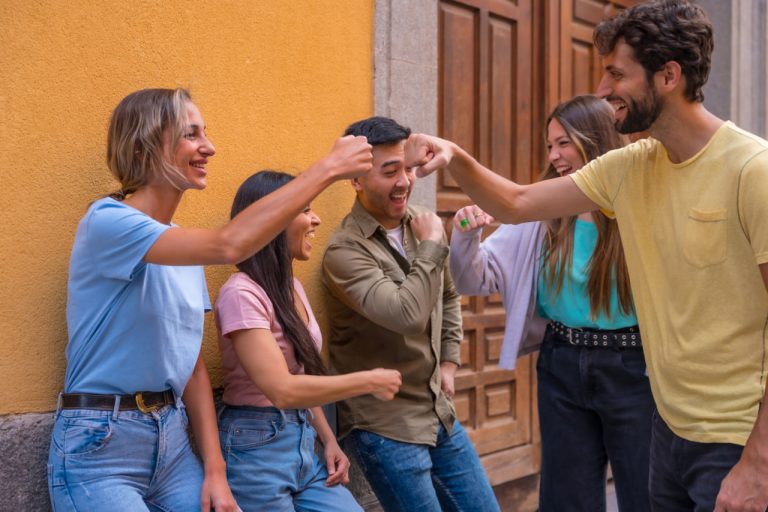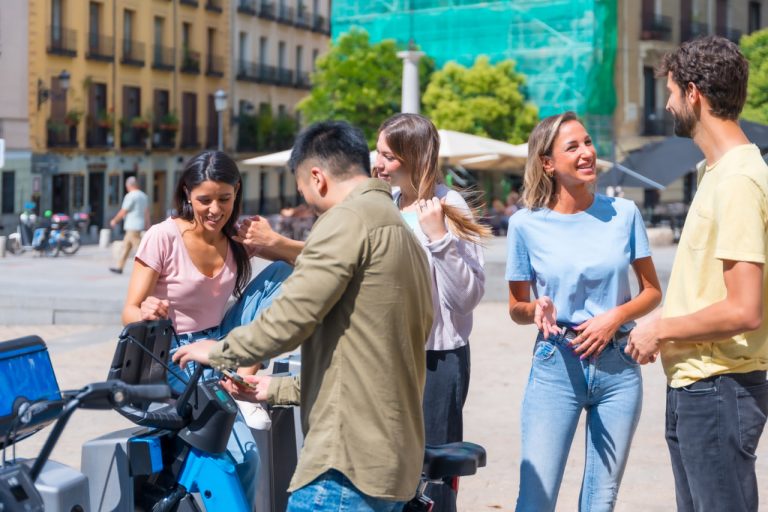Why Learning Travel Spanish Matters
Traveling to a Spanish-speaking country offers a rich cultural experience, and knowing the basics of the language can make your trip more enjoyable and less stressful. While many tourist spots have English-speaking staff, relying solely on that can limit your experience. Understanding key Spanish words and expressions opens the door to authentic interactions, smoother navigation, and greater independence. Even a small vocabulary can build trust with locals and enhance your understanding of the place you’re visiting.
Common Greetings and Polite Expressions
Politeness is universal, and knowing how to greet people appropriately goes a long way. When entering a shop, meeting someone, or starting a conversation, a friendly “hola” (hello) or “buenos días” (good morning) makes a good impression. Use “por favor” (please) and “gracias” (thank you) regularly. They are simple but essential.
If you need to excuse yourself or get someone’s attention, say “perdón” or “disculpe.” When meeting someone, “mucho gusto” (nice to meet you) is a warm and polite phrase. These expressions may seem small, but they reflect a respectful attitude that’s appreciated in every culture.
Essential Phrases for Transportation
Navigating transportation can be one of the trickiest parts of traveling. Knowing how to ask basic questions helps you move around confidently. “¿Dónde está la estación?” means “Where is the station?” You can also ask “¿Cuánto cuesta un billete a…?” to inquire about the cost of a ticket.
If you need to find a taxi, the phrase “¿Puede llamar un taxi, por favor?” is helpful. For buses and trains, words like “horario” (schedule), “salida” (departure), and “llegada” (arrival) are useful. Being able to ask and understand these basics allows you to travel more freely and avoid unnecessary stress.
Ordering Food and Dining Out
Restaurants are a central part of cultural exploration. Start with “una mesa para dos, por favor” (a table for two, please). The waiter may ask “¿Qué desea tomar?” which means “What would you like to drink?” Learn to say common items like “agua” (water), “cerveza” (beer), or “vino” (wine).
For food, words like “pollo” (chicken), “pescado” (fish), “carne” (meat), “ensalada” (salad), and “pan” (bread) are frequently used. If you have dietary restrictions, phrases like “Soy alérgico a…” (I’m allergic to…) or “No como carne” (I don’t eat meat) are important.
To ask for the bill, say “¿Nos puede traer la cuenta, por favor?” Showing effort with the language when dining often leads to warmer service and sometimes even recommendations you wouldn’t have found otherwise.
Navigating Hotels and Accommodations
Checking into hotels usually involves providing personal details and confirming your booking. “Tengo una reserva” means “I have a reservation.” You might be asked for your passport: “¿Tiene su pasaporte?” Common requests include “una habitación con baño privado” (a room with a private bathroom) or “¿Hay Wi-Fi gratuito?” (Is there free Wi-Fi?).
If something goes wrong, knowing how to say “No funciona” (It doesn’t work) or “Necesito ayuda” (I need help) can make solving the issue much easier. Being prepared with these key terms avoids confusion and helps you get the service you need.
Asking for Directions
Getting lost in a new city is common, but a few phrases can help you find your way. “¿Dónde está…?” is a powerful phrase that can be used with anything you’re trying to locate, like “el banco” (the bank), “el museo” (the museum), or “el supermercado” (the supermarket).
You might hear responses like “gire a la izquierda” (turn left), “a la derecha” (to the right), or “siga recto” (go straight). Even if you don’t understand the full explanation, catching directional cues and landmarks will often be enough to get you back on track.
Shopping and Handling Money
Shopping in local markets is often one of the most enjoyable parts of travel. Asking “¿Cuánto cuesta?” (How much does it cost?) is a must. You might want to negotiate in some places, so knowing numbers in Spanish helps. Phrases like “¿Me puede dar un descuento?” (Can you give me a discount?) can be useful in markets.
Make sure you recognize key terms like “efectivo” (cash), “tarjeta” (card), and “recibo” (receipt). If you’re unsure about the currency or change, you can ask “¿Está bien el cambio?” (Is the change correct?). These phrases give you control and confidence while shopping.
Emergency Situations and Health
Hopefully you won’t need to use them, but knowing basic emergency phrases can be crucial. “Necesito ayuda” (I need help), “Llame a una ambulancia” (Call an ambulance), and “¿Dónde está el hospital más cercano?” (Where is the nearest hospital?) are important in a crisis.
If you’re feeling unwell, you might say “Me siento mal” (I feel sick) or “Tengo fiebre” (I have a fever). Pharmacists are often helpful, and asking “¿Tiene algo para…?” (Do you have something for…?) can point you to the right medicine. Carrying a short list of emergency phrases on your phone or in your wallet is a smart backup plan.
Building Cultural Respect Through Language
Speaking the local language, even at a basic level, shows that you care about the culture you’re visiting. It opens doors, sparks conversations, and creates shared experiences that go beyond sightseeing. Locals are more likely to welcome you warmly and offer help when they see you making an effort.
Cultural respect also includes tone and body language. In Spanish-speaking countries, greetings often come with a handshake or a cheek kiss, depending on the region. Make eye contact, smile, and speak at a calm pace. These details, combined with language basics, create smoother interactions.
Making Learning a Part of the Journey
You don’t have to know everything before you go. Travel itself is one of the best teachers. Carry a phrasebook or use a translation app, but don’t be afraid to try speaking on your own. Each day offers a chance to learn something new — whether it’s a menu item, a local expression, or a polite way to say goodbye.
The more you use the language in context, the faster it sticks. Real-world use strengthens memory, pronunciation, and confidence. If you keep your ears open and stay curious, you’ll find that your language skills improve naturally as you explore.



